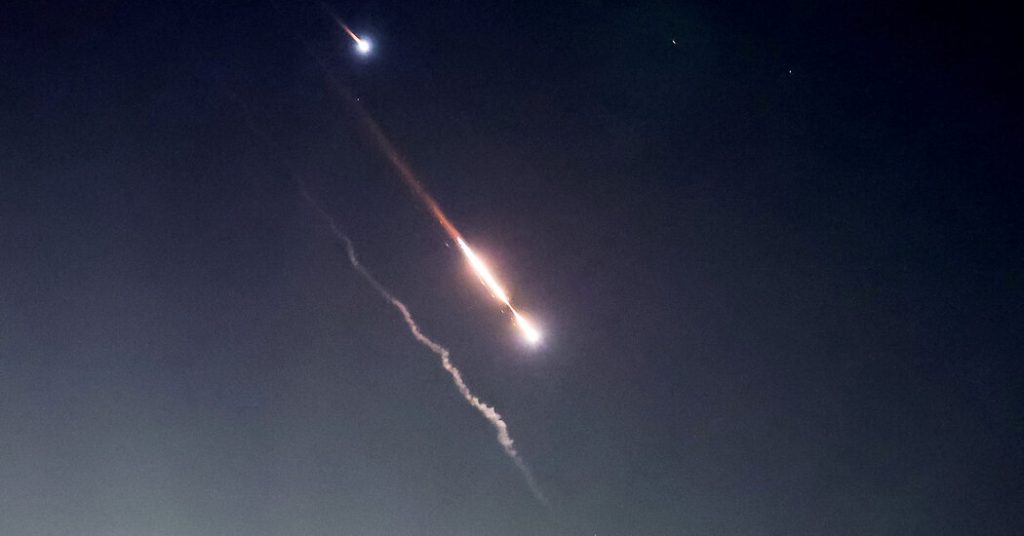Iran has retaliated against Israel for the killings of its senior generals in Damascus with an onslaught of more than 300 drones and missiles aimed at restoring its credibility and deterrence. However, officials and analysts say that this represents a moment of great risk, with key questions still to answer. Has Iran’s attack been enough to satisfy its calls for revenge? Will Iran feel obligated to strike again given the relatively poor results? Will Benjamin Netanyahu see the strong performance by Israel’s air defenses as a sufficient response or choose to escalate further with an attack on Iran itself?
Iran’s government concluded that the Damascus strike represented a strategic inflection point, where failure to retaliate would carry more downsides than benefits. The Iranian attack on Israel targeted only military sites to avoid civilian casualties and was publicized in advance. Despite Iran stating that the military operation against Israel is over, there is a warning that a bigger operation could be launched depending on Israel’s response. Both sides are prepared for an escalation that could result in significant damage.
The conflict between Israel and Iran shifted to a new chapter with a direct Iranian strike on Israel’s Embassy compound in Damascus, followed by an Israeli strike on Iran. The long-standing conflict has been mainly carried out between the two sides and through allies and proxies in various regions. Iran’s expanding nuclear program is seen as a deterrent against Israel, but experts consider Iran as a nuclear-threshold state capable of creating nuclear weapons. Iran’s operation against Israel was ordered by Ayatollah Ali Khamenei to shift from strategic patience to active deterrence.
Iran’s new isolation after the recent attack may prompt Israel to respond, according to analysts. With Iran reaching for regional hegemony and support from proxies and nuclear capabilities, Arab countries have quietly supported Israel’s efforts to limit Iran’s power. Both sides are prepared for escalation despite potential regional risks. Hezbollah’s presence in southern Lebanon has acted as a deterrent, preventing direct Israeli attacks on Iran and its nuclear program.
The modest outcome of the Iranian attacks may strengthen Israel’s perception that Tehran lacks the capacity for deeper engagement, leading to a desire to inflict a deeper blow on Iran and its proxies. The challenge for Israel is to thwart the attack while still leaving room for Iran to claim achievement. There is a risk of devolving into a regional war or prompting another Iranian operation. Iran’s mission to the United Nations suggested that the matter can be concluded unless Israel makes another mistake, in which case a more severe response will follow.
In conclusion, Iran’s retaliatory attack on Israel marks a significant escalation in the conflict between the two countries. The risk of further escalation and potential regional consequences is high. Both sides are prepared for further conflict, with the possibility of devastating consequences if an all-out war erupts. The situation remains volatile, and the international community will be closely watching for any developments that could lead to a broader conflict.


